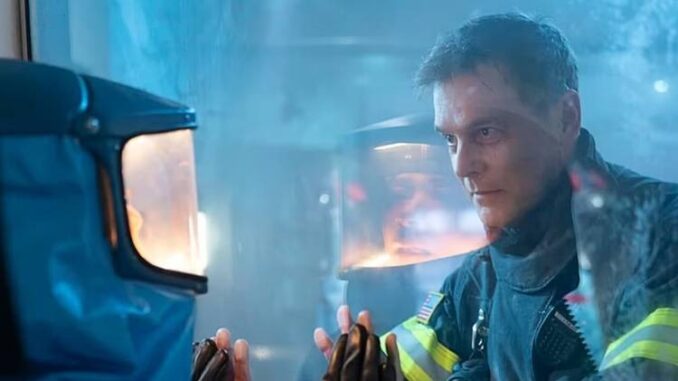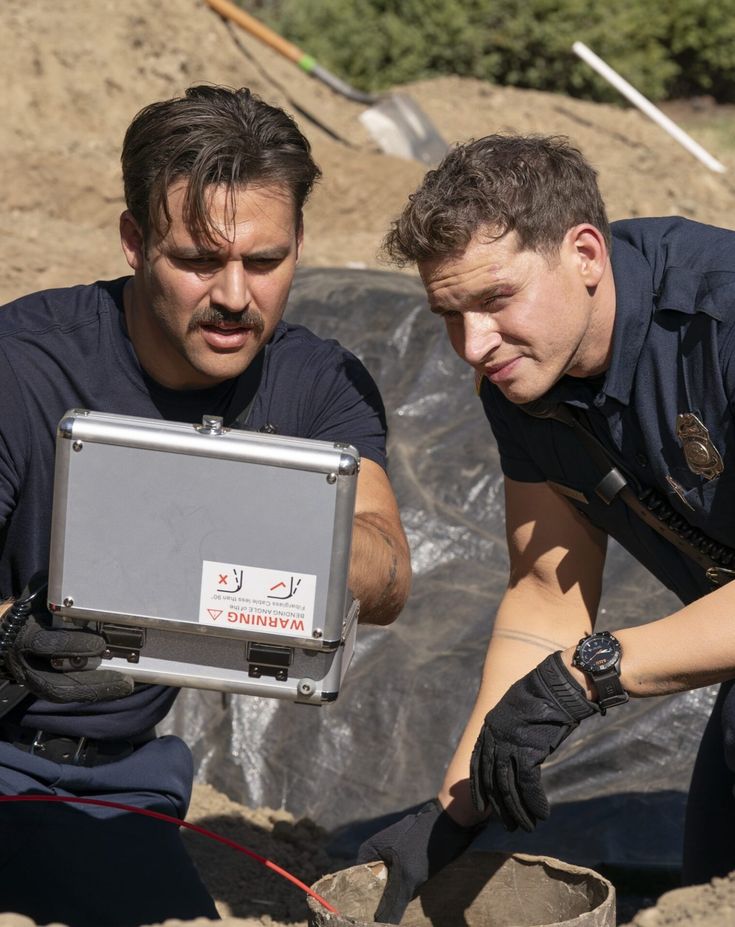
At the panel for The Rookie at SDCC 2025, which ScreenRant’s Rachel Foertsch attended, showrunner Alexi Hawley mentioned that after Captain Zoe Andersen’s death in season 1, he felt it was too hard to replace her. Thus, the show has never done so. As he explained, unless it’s an episode where they specifically need a captain, it’s just not something they’re focusing on.
In doing so, The Rookie has so far managed to avoid the challenge that’s now facing 9-1-1 for its upcoming season 9: how to replace its captain after a tragedy. 9-1-1 season 8 shockingly killed Captain Bobby Nash, and now season 9 is left with the big question of who will replace Peter Krause’s character as the captain of the 118. While the most logical choice for his replacement is to promote one of the current firefighters on the show, it’s also possible that 9-1-1 could decide to bring in an outside character to fill his shoes. The latter option would likely anger fans and the crew of Station 118 alike, as, no matter how qualified or cool the person is, they’d be seen as a usurper.
However, even the former option is likely to ruffle feathers, as no matter who is chosen, it’s inevitable that some viewers will prefer a different character be promoted to replace Bobby. It’s a bit of a no-win situation for 9-1-1, and the show’s upcoming season will face a significant challenge to move past its decision to kill off Bobby, which still has fans outraged months later.
Replacement Captain Problem
In the world of network drama, leadership matters—on and off-screen. While 9-1-1 finds itself navigating rough waters with its current captain replacement dilemma, The Rookie has smoothly sailed through similar scenarios with a tactful, strategic approach. But how did one show get it so right while the other stumbled? Let’s break down the reasons behind The Rookie’s success and 9-1-1’s struggle.
Setting the Stage — Two Shows, One Genre, Different Paths
Both The Rookie and 9-1-1 are action-packed procedural dramas set in high-pressure emergency environments. While The Rookie focuses on law enforcement, 9-1-1 centers around first responders like firefighters and paramedics. Despite their differences, they both thrive on strong ensemble casts and emotionally charged storylines.
The Captain Conundrum in 9-1-1
What Happened With Bobby Nash?
9-1-1 fans were shocked when the fate of beloved fire captain Bobby Nash (played by Peter Krause) hung in the balance. Whether the character was temporarily sidelined or written out for dramatic effect, the introduction of a replacement captain sparked mixed emotions.
Audience Backlash and Narrative Disruption
Fans were vocal about how the leadership switch felt forced. Many viewers struggled to connect with the new character, who seemed less grounded and more like a plot device than a genuine leader.
Why Leadership in Dramas Feels Personal
When a show’s leadership changes, it affects viewer trust. People form emotional attachments to authority figures, especially those who’ve led the team through years of crises. Replacing a character like Bobby Nash without proper buildup can feel like losing the heartbeat of the squad.
Meanwhile at The Rookie: Quiet Confidence in Character Arcs
The Power of Sergeant Wade Grey
Rather than relying on one standout “captain,” The Rookie spreads authority across several characters. Richard T. Jones’ portrayal of Sergeant Grey offers grounded wisdom, while other leaders like Angela Lopez and Tim Bradford bring their own unique style.
Nathan Fillion’s Officer Nolan—The Anchoring Force
John Nolan might not be a captain, but his character has evolved into a stabilizing presence. The Rookie leans into leadership through mentorship rather than titles, giving the show narrative flexibility.
Organic Leadership Evolution
Where 9-1-1 replaced a core character with someone new, The Rookie gradually transitions characters into leadership roles. There’s no jarring jump—just growth.
Smart Casting Over Shock Value
The Rookie’s Calculated Casting Choices
Casting in The Rookie is deliberate and purposeful. New characters are introduced with backstories, personalities, and room to develop—never as sudden stand-ins for mainstays.
9-1-1‘s Fast-Tracked Fixes Fell Flat
The attempt to quickly patch the leadership vacuum in 9-1-1 came off as rushed. The replacement lacked chemistry with the core team, creating narrative friction instead of connection.
Consistency Is King in Crime Dramas
The Rookie’s Stable Writing Team
One underrated advantage The Rookie holds is its consistent storytelling tone. The show maintains balance between action, humor, and heartfelt moments without compromising its core identity.
9-1-1’s Risky Experimentation
In contrast, 9-1-1 often swings for the fences—sometimes landing emotionally rich episodes, other times veering into melodrama. When leadership shifts suddenly, it only magnifies tonal inconsistencies.
Showrunner Strategies Make All the Difference
Alexi Hawley’s Long-Term Vision
The Rookie showrunner Alexi Hawley plays the long game. Character arcs are built with patience, which builds audience loyalty.
Procedural vs. Episodic Focus
9-1-1 often goes for episode-centric storytelling, which can make long-term arcs feel disjointed. That becomes a real issue when big changes—like a captain switch—aren’t woven into a broader narrative.
Team Chemistry Is Hard to Manufacture
Authenticity Over Authority
On The Rookie, team dynamics feel natural. Leadership isn’t just about barking orders—it’s about trust and emotional intelligence. That authenticity keeps fans invested, even during cast changes.
9-1-1‘s New Dynamic Feels Off-Balance
The chemistry among 9-1-1’s core cast has always been its superpower. Introducing a new captain without properly developing those connections creates an emotional disconnect with viewers.
Handling Change Without Breaking Trust
Evolution, Not Disruption
The Rookie understands that fans don’t mind change—they just want it to feel earned. Whether it’s Nolan taking on more responsibility or Bradford stepping into a training role, it all flows logically.
Sudden Shifts = Viewer Disengagement
9-1-1’s jarring pivot felt more like a reset button than a storyline. Viewers felt blindsided, and that leads to declining trust in the show’s direction.
Lessons 9-1-1 Can Learn from The Rookie
Don’t Rush Replacements
Leadership transitions work best when handled with subtlety and depth. Give characters time to grow into new roles rather than assigning them overnight.

Focus on Team Dynamics
A captain is only as strong as the team around them. The Rookie nails this by investing in every supporting character, not just the one at the top.
Listen to Fan Feedback
One major win for The Rookie has been its ability to pivot based on audience response—without sacrificing story quality. Fan engagement should be a tool, not a threat.
Final Thoughts — Storytelling Is a Marathon, Not a Sprint
The Rookie’s success lies in its ability to play the long game. It respects its characters, trusts its audience, and avoids quick fixes that create long-term problems. Meanwhile, 9-1-1 may be learning the hard way that leadership isn’t just about rank—it’s about connection, continuity, and character depth.
If 9-1-1 wants to reclaim its narrative strength, it might do well to borrow a page from The Rookie’s playbook: lead with heart, and let change happen naturally.